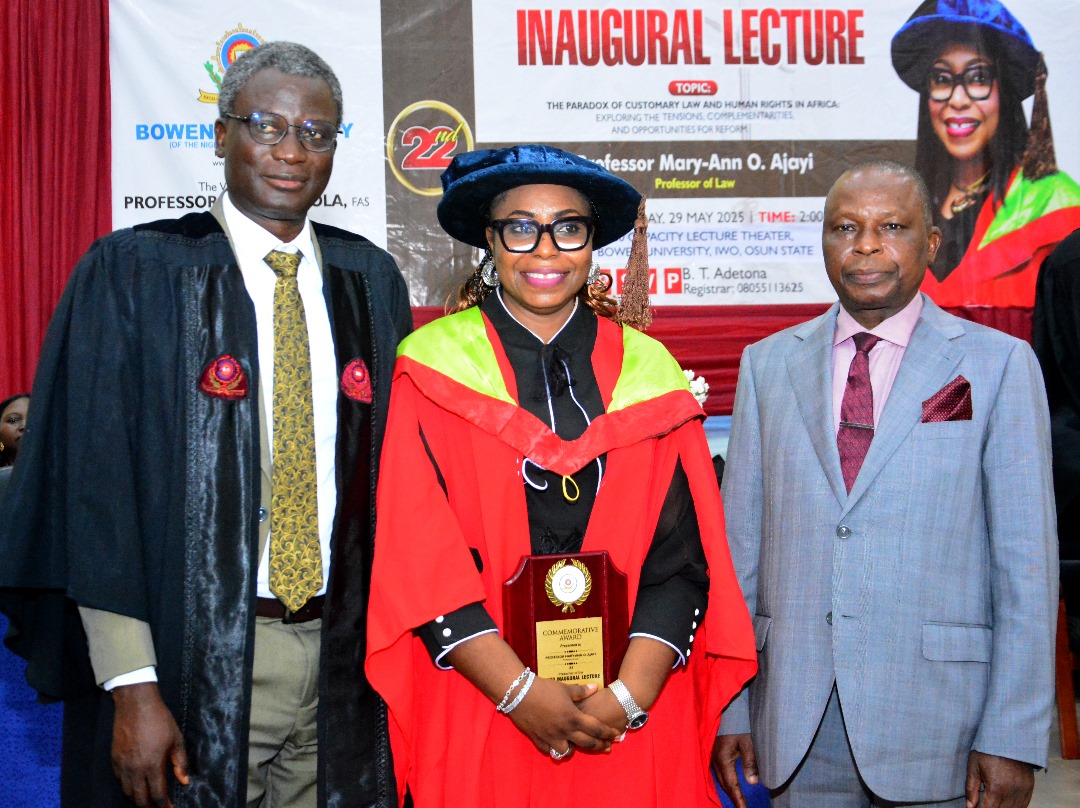The Attorney-General of the Federation and Minister of Justice, Prince Lateef Fagbemi (SAN), has acknowledged President Bola Tinubu’s sensitivity to gender balancing, describing him as a fair leader who gives prominent roles to women in his government.
The nation’s number one legal officer made the remark on Thursday, May 29, 2025, at the 1,500-capacity lecture theater of Bowen University in Iwo, Osun State, during an inaugural lecture delivered by Prof. Mary-Ann Ajayi of the institution’s Faculty of Law.
According to him, the president doesn’t look down on women, but looks up to them in working together for the greatness of the country.
“For the President of the Federal Republic of Nigeria, President Bola Ahmed Tinubu, GCFR. He has focused on balancing the situation. If you look at the choice ministries, you will see that women feature prominently. Look at some of the agencies, women take the central, in fact, the front roles. It is a work in progress. And I want to assure you that the President does not look down on women. He looks up to them,” he said.
Fagbemi, who noted that the nation has developed a body of laws to protect women, emphasized the roles being played by the judiciary in ensuring that the female gender gets justice anytime their rights are infringed upon.
According to him, beyond legislating on the issue of gender equality, all the stakeholders must play their role to ensure that the provisions are respected at all levels.
“The constitution prescribes that there should be no gender discrimination in any way, in any form, and that all genders, both genders, are equal. We also have legislation backing this up. I mean, flowing from the constitution, and from the way the president has been making his appointments, you will agree with him that there has been some fair balancing of genders. What we need is not just legislation, it is the will to drive this legislation. And this is not a matter for the government alone. It is for you and me, in our dealings, to recognize this gender equality, not only recognize, but to pursue it, to make sure that we give it space, to function.”
In her inaugural lecture titled “The paradox of customary laws and human rights in Africa: Exploring the tensions, complementarities, and opportunities for reforms”, Prof. Ajayi argued that many of the customary laws in existence are not archaic in the strict sense, but need fine-tuning to make them consistent with the contemporary human rights laws.
While making a strong case for the codification of various African customary laws, the lecturer also called for effective collaboration with the local communities to promote widespread awareness of the laws.
“There should be a lot of education. There should be a lot of awareness. There should be a lot of cooperation between the people and the traditional rulers. Only when we can do this, that is when we can actually achieve what we want.
“African culture is a body of laws. For example, laws from my state, form a customary law. Your own laws, where you come from form a customary law. A conglomerate of those laws constitutes so many laws. So what do we have to do? We are now saying that these laws should be codified. Don’t just demonize all the laws. Try to codify them. Do away with the ones that are repugnant to natural justice and then sustain those that are okay. For example, in the Benin customary law, we are the eldest son has the right to inherit the father’s property. If you look at it, some human rights activists will say what about the daughters? Why are you leaving aside the daughters? But the underpinnings behind that law is not to exclude the daughters. It is because there should be continuity. The son has to step into the role the father used to occupy and then take care of not just the assets but the liabilities as well,” she noted.
The Vice Chancellor of the university, Prof. Jonathan Babalola, described inaugural lectures as one of the ways the academic institutions contribute to policy making in the society.
He said apart from depositing copies of the lectures at the National Library for public access, the university organises several public engagement forums to ensure that academic efforts address important societal challenges.




